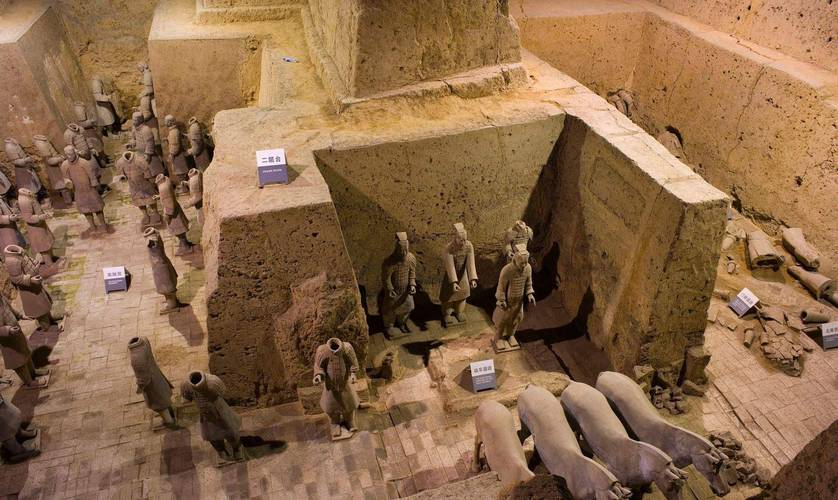
Will the Tomb of Qin Shi Huang Ever Be Opened?
Archaeologists are terrified to open the tomb of Qin Shi Huang, China's first emperor who has been buried for 2,200 years. The tomb of Qin Shi Huang, who ruled from 221 BC to 210 BC, is guarded by a terracotta army of soldiers and horses.
The Mysteries Surrounding Qin Shi Huang's Tomb
The tomb of Qin Shi Huang is one of the most fascinating and mysterious archaeological sites in the world. Located in Xi'an, China, the tomb has been sealed for over two millennia, leaving historians and archaeologists with countless unanswered questions.
Ancient Accounts and Legends
Historical records, like those from Sima Qian's "Records of the Grand Historian", describe the tomb as an opulent complex mirroring the emperor's earthly palace. It's said to contain treasures beyond imagination and a ceiling designed to resemble the night sky, studded with precious stones. Legends even mention rivers of flowing mercury, symbolizing the major rivers of China.
Modern Discoveries and Technological Limitations
The discovery of the Terracotta Army in 1974, just outside the tomb complex, provided a glimpse into the scale and grandeur of Qin Shi Huang's final resting place. However, the main tomb itself remains unexcavated.
Despite advances in archaeology and technology, experts are hesitant to disturb the tomb. Concerns stem from several factors:
- Structural Integrity: The immense size and age of the tomb raise concerns about potential collapses if disturbed.
- Preservation of Artifacts: Ancient texts mention booby traps like rigged crossbows, and there are fears that exposure to air and light could damage delicate artifacts sealed inside.
- Mercury Contamination: The accounts of flowing mercury pose serious environmental and health risks. Disturbing such a large quantity could be disastrous.
Ethical Considerations and Cultural Respect
Beyond the practical concerns, there are significant ethical considerations surrounding the excavation of Qin Shi Huang's tomb.
- Respect for the Deceased: In Chinese culture, disturbing the dead is a sensitive issue. Many believe the emperor should be allowed to rest undisturbed.
- Cultural Heritage: Opening the tomb prematurely could result in the loss or damage of invaluable historical artifacts. There's a strong argument for waiting until technology can guarantee their preservation.
The Future of Qin Shi Huang's Tomb
For now, the tomb of Qin Shi Huang remains a sealed treasure trove of history. Archaeologists continue to use non-invasive techniques like ground-penetrating radar and remote sensing to study the site without disturbing it. The debate continues about whether the tomb should ever be opened. Some argue that the potential knowledge gained outweighs the risks, while others believe it's best left untouched, preserving its mystery for future generations.
Q&A
Q: What is the Terracotta Army?
A: The Terracotta Army is a collection of thousands of life-sized clay soldiers, horses, and chariots that were buried with Qin Shi Huang to protect him in the afterlife.
Q: Why was mercury used in the tomb?
A: In ancient China, mercury was believed to have magical properties, including the ability to prolong life. It is thought that Qin Shi Huang used mercury in his tomb in an attempt to achieve immortality.
Q: Are there any plans to open the tomb in the future?
A: There are currently no official plans to open the tomb of Qin Shi Huang. The Chinese government has stated that it will only consider excavating the tomb when technology is advanced enough to ensure the preservation of its contents.